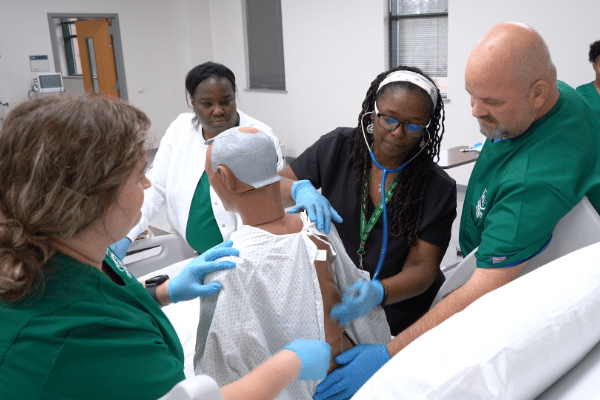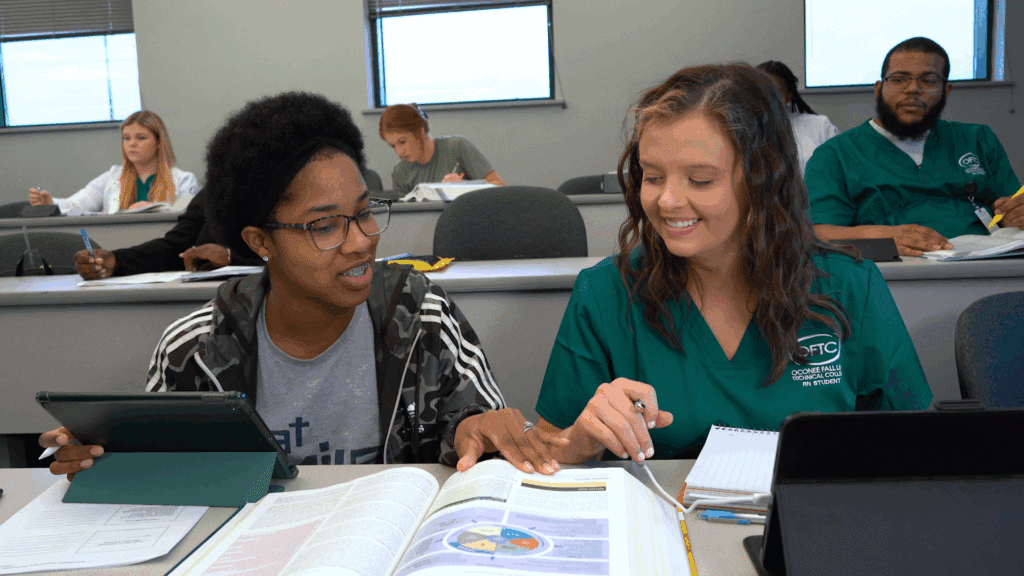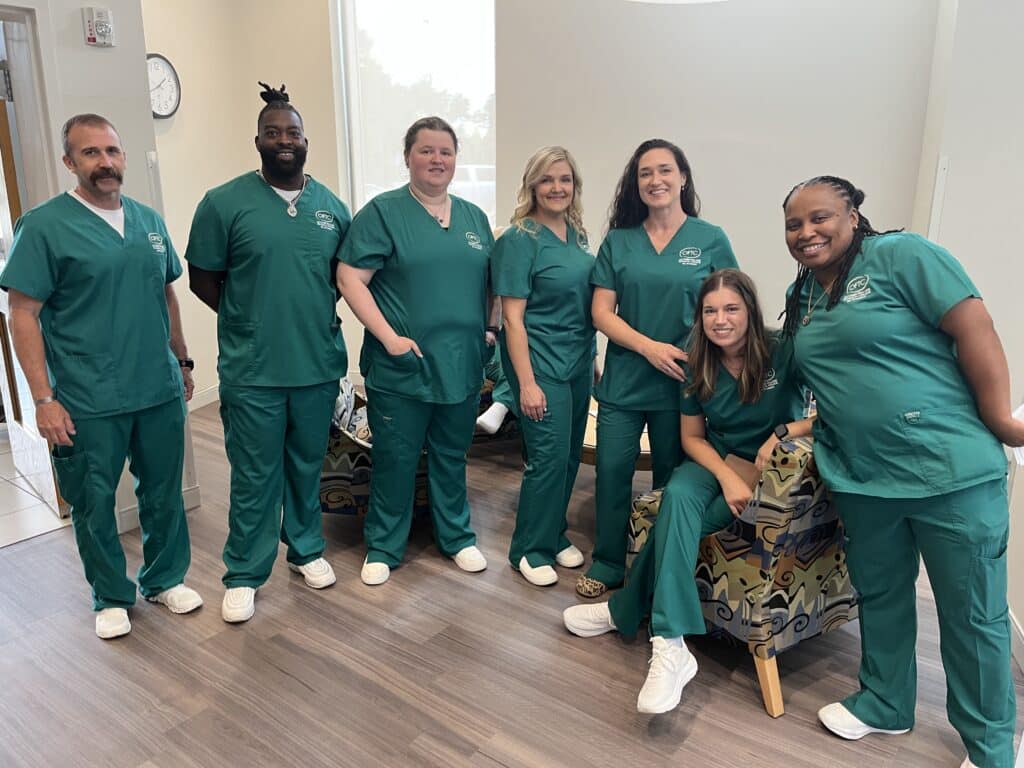Closing the Gap: OFTC’s Role in Strengthening Rural Georgia’s Nursing Workforce
settings
OFTC — As Georgia faces a growing nursing shortage, Oconee Fall Line Technical College (OFTC) is stepping up to close the gap—one graduate at a time.
According to a recent Health Workforce Analysis published by the Health Resources and Services Administration, federal authorities project a shortage of 63,720 full-time Registered Nurses (RN) in 2030, naming Georgia as one of ten states with the largest projected nursing shortage in 2035.
The Need in Rural Georgia
The demand for registered nurses is especially critical in the rural communities OFTC serves. Economic Modeling Specialists, Inc. projected that RN demand in the college’s 11-county service area would grow by 11% by 2024. That growth reflects a larger challenge facing rural Georgia, where health disparities are more severe and healthcare access is more limited.
Often described as part of the “stroke, cancer, obesity, and disparity belt,” rural Georgia experiences higher rates of chronic illness, poverty, and uninsured residents. Limited infrastructure, lower levels of education, and fewer transportation options further widen the health gap in rural communities. Many OFTC’s counties also rank among the unhealthiest in the state, with eight of the 11 in the bottom third for overall health outcomes.
Local hospitals are feeling the strain. Three of the largest healthcare facilities within OFTC’s middle Georgia counties are all currently operating with RN staffing shortages—emphasizing the urgent need for more trained nurses in the region.
Filling the Gap

In response to this growing demand for nurses, OFTC has implemented strategic nursing education pathways designed to expand access to high-quality training and accelerate workforce entry. By offering both a traditional Associate of Science in Nursing (ASN) Program and an Associate Degree in Nursing (ADN) Bridge Program for qualified Licensed Practical Nurses (LPN) and paramedics, OFTC is equipping students with the skills, credentials, and clinical experience needed to serve their communities and help fill the nursing gap in rural middle Georgia.
“Our entire mission is workforce development, so finding ways to help fill the gap and meet the demand for more nurses within our rural communities is what makes us who we are,” shared OFTC President, Erica Harden.
“These two nursing programs provide students with a direct path to a rewarding career, and we’re proud to be a part of training the compassionate professionals our local healthcare systems so urgently need,” she added.
RN Program Pathways
OFTC’s ADN Bridge program provides an accelerated option for experienced healthcare professionals, while the ASN program offers a traditional path for those beginning their nursing journey.
Since admitting its first cohort of ADN Bridge program students in fall 2019, this program has consistently demonstrated exceptional results with students achieving a 93% average pass rate on the NCLEX-RN exam for first-time test takers—outperforming both the national average of 84% and Georgia’s state average of 88% for other associate degree programs.
OFTC’s ASN program offers a traditional pathway for students beginning their nursing education journey and is ideal for those without prior nursing credentials who want to become RNs.
OFTC admitted its first cohort of ASN program students in January 2024. These students completed the program in May and are preparing to sit for the NCLEX-RN exam.
The college’s second ASN cohort is already expected to be larger than the first.
A Proven Impact

Through its commitment to accessible, high-quality nursing education, OFTC is helping to bridge the healthcare gap in rural Georgia. With 302 associate degree nursing grads to date, the college has played a vital role in strengthening the region’s healthcare workforce—one graduate at a time.
“Our OFTC students and future RN hires are equipped with both the clinical and soft skills needed for successful integration into the acute care setting,” shared Pam Manders, Chief Nursing Officer at Fairview Park Hospital. “The personalized training and support each student receives through the college is evident in their eagerness to learn in the clinical setting, the work ethic they demonstrate, and the professionalism they show while in the hospital.”
“We’ve loved hiring graduates of OFTC’s ADN Bridge program and are excited to welcome our first ASN graduates this summer,” she added. “We look forward to continuing our partnership with OFTC to educate the future nurses of middle Georgia.”
As demand continues to grow, OFTC remains focused on expanding its nursing pathways, empowering students, and ensuring more rural Georgians receive the compassionate, quality care they deserve—close to home.
For more info on OFTC’s Nursing Programs, visit the college’s website, OFTC.edu.
###